Enter the following command to check if a private key and public key are a matched set (identical) or not a matched set (differ) in $USER/.ssh directory. The cut command prevents the comment at the end of the line in the public key from being compared, allowing only the key to be compared.
ssh-keygen -y -f ~/.ssh/id_rsa | diff -s - <(cut -d ' ' -f 1,2 ~/.ssh/id_rsa.pub)
Output will look like either one of these lines.
Files - and /dev/fd/63 are identical
Files - and /dev/fd/63 differ
I wrote a shell script that users use to check file permission of their ~/.ssh/files and matched key set. It solves my challenges with user incidents setting up ssh. It may help you. https://github.com/BradleyA/docker-security-infrastructure/tree/master/ssh
Note: My previous answer (in Mar 2018) no longer works with the latest releases of openssh. Previous answer: diff -qs <(ssh-keygen -yf ~/.ssh/id_rsa) <(cut -d ' ' -f 1,2 ~/.ssh/id_rsa.pub)
